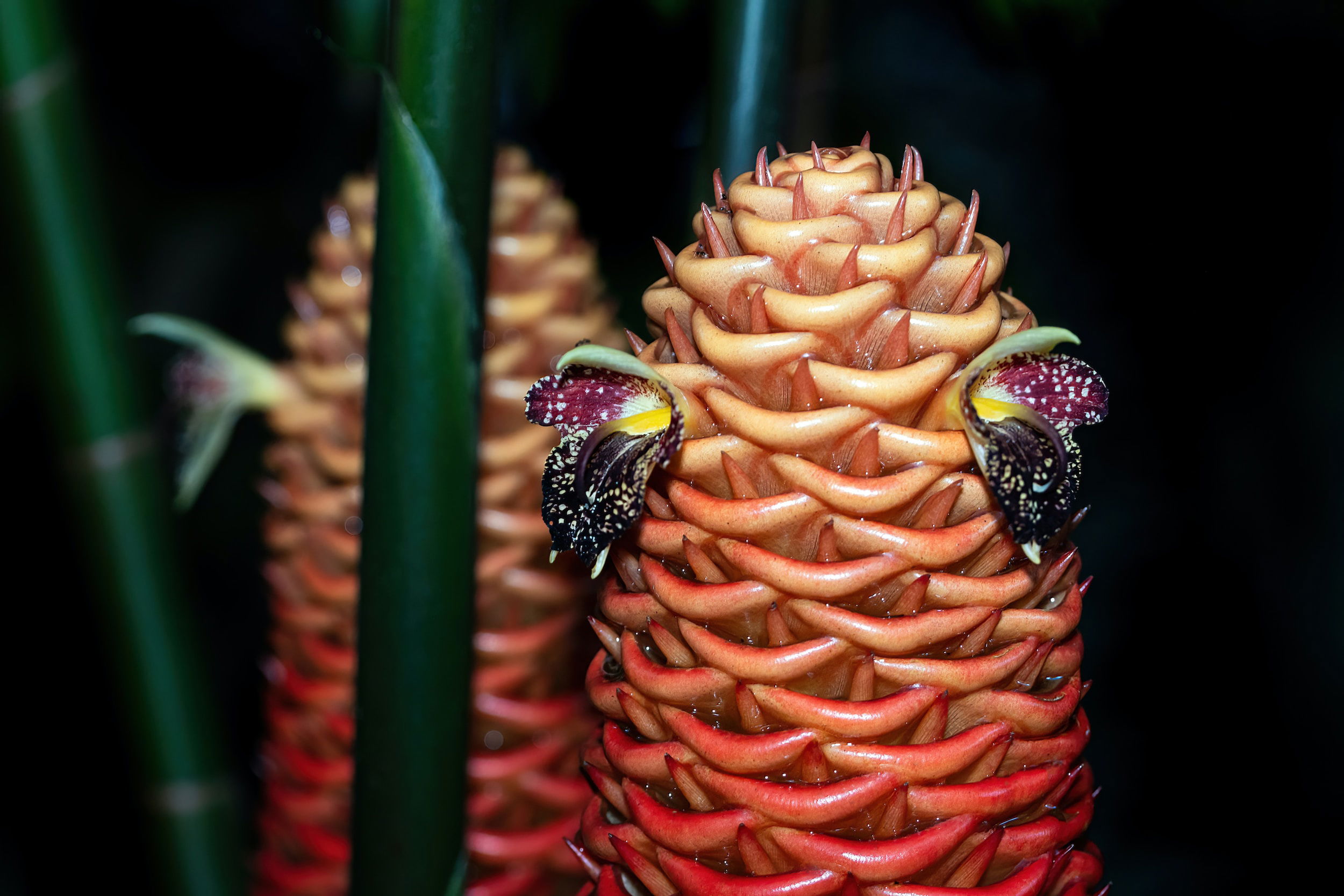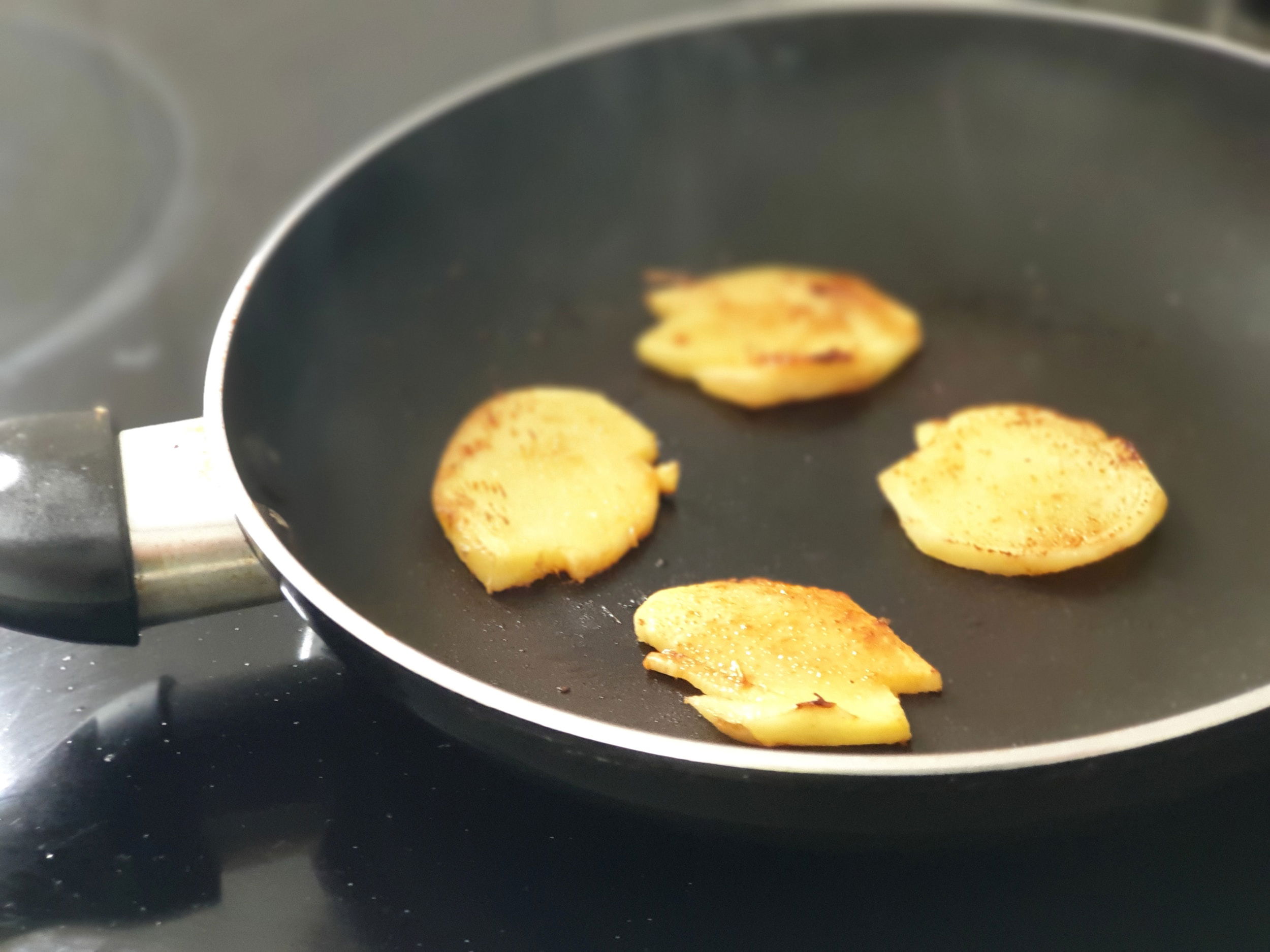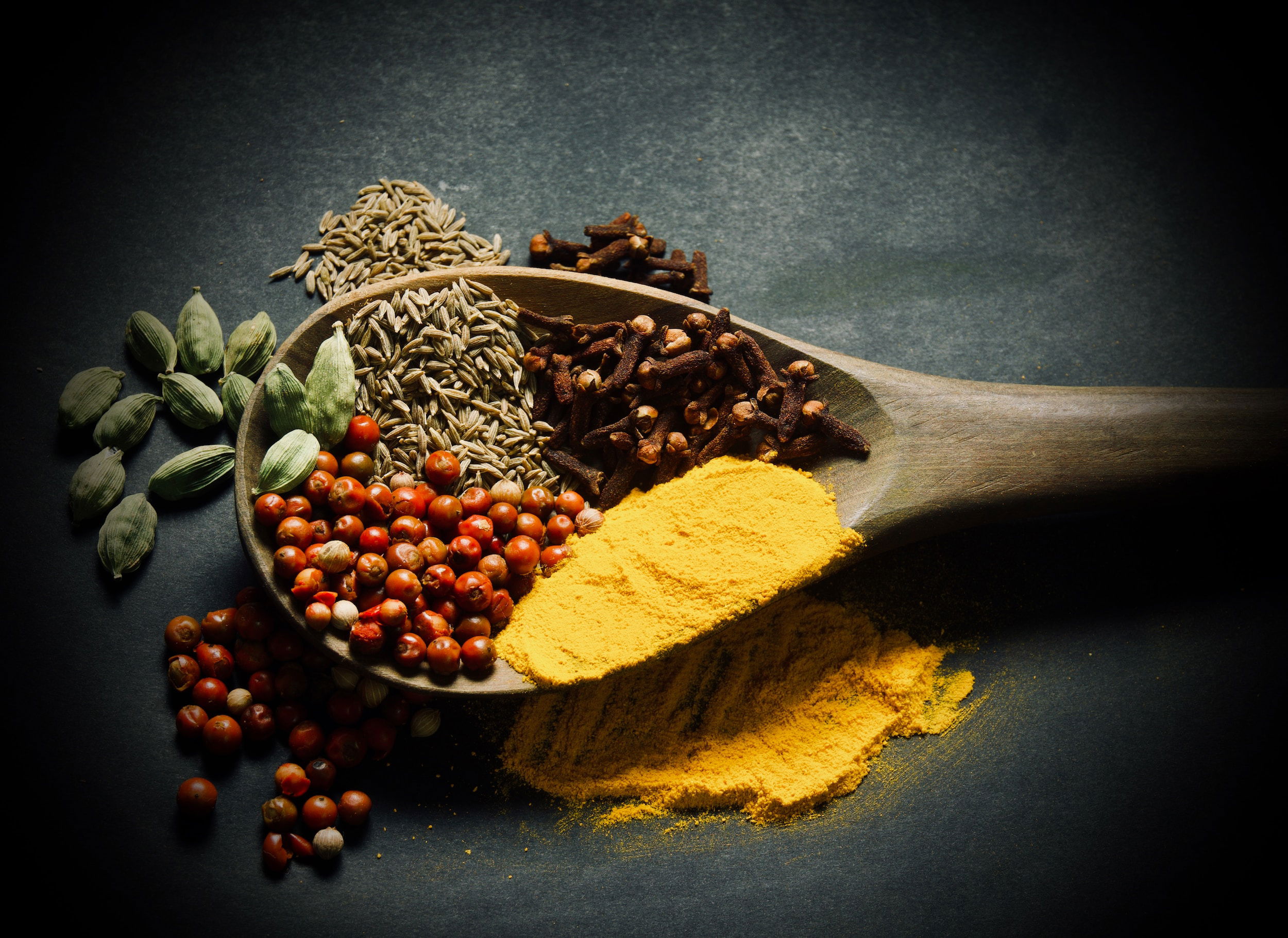How to Incorporate Thai Ginger into Your Menu for a Spicy Kick

Thai Ginger is a versatile and flavorful ingredient that can add a spicy kick to any dish. This aromatic root has been used in traditional Thai cooking for centuries and offers a range of health benefits. If you're looking to spice up your menu, Thai ginger is an excellent addition to your kitchen.
In this article, we'll explore different ways to incorporate Thai ginger into your meals, from appetizers to desserts. We'll also provide tips on how to store and prep your Thai ginger for maximum flavor. Get ready to add a fiery flair to your cooking with Thai ginger!
Introduction to Thai Ginger and its Benefits
If you're a fan of spicy food, then you've probably encountered Thai ginger in your culinary adventures. Thai ginger, also known as galangal, is a root that looks similar to ginger but has a sharper taste and citrusy aroma. It's a staple ingredient in Thai cuisine and adds a fiery kick to any dish. But Thai ginger isn't just popular for its flavor; it also boasts several health benefits.
What is Thai Ginger?
Thai ginger is a plant that belongs to the ginger family and is native to Southeast Asia. Its root is used in cooking and has a pungent and spicy taste. Thai ginger is commonly used in Thai dishes such as tom yum soup, green curry, and panang curry.
Health Benefits of Thai Ginger
Thai ginger is not only a delicious ingredient but also has several health benefits. It's known to relieve digestive issues such as nausea and indigestion, reduce inflammation, and lower cholesterol levels. It's also a good source of antioxidants and has antimicrobial and antibacterial properties.

Thai Ginger in Appetizers: Creative Ideas to Spice Up Your Starters
Thai ginger can take your appetizers to the next level with its spicy and zesty flavor. Here are some creative ideas to incorporate Thai ginger in your appetizers.
Thai Ginger Edamame
Spice up your edamame by tossing it with Thai ginger, garlic, and soy sauce.
Thai Ginger Chicken Wings
Marinate your chicken wings with Thai ginger, lime juice, and lemongrass for a zesty and spicy kick.
Thai Ginger Shrimp Skewers
Grill shrimp skewers marinated in Thai ginger, honey, and lime juice for a delicious and healthy appetizer.
Thai Ginger Avocado Toast
Add a spicy twist to your avocado toast by spreading mashed avocado on toasted bread and topping it with Thai ginger, chili flakes, and a drizzle of honey.

Thai Ginger in Main Dishes: Add a Fiery Flair to Your Entrees
Thai ginger can elevate your main dishes by adding a bold and fiery flavor. Here are some ideas to incorporate Thai ginger in your entrees.
Thai Ginger Beef Stir-Fry
Stir-fry beef with Thai ginger, garlic, onions, and bell peppers for a quick and easy weeknight dinner.
Thai Ginger Salmon
Marinate salmon with Thai ginger, soy sauce, and sesame oil before grilling it for a flavorful and healthy meal.
Thai Ginger Fried Rice
Add Thai ginger, scrambled eggs, vegetables, and soy sauce to your fried rice for a delicious and spicy twist.
Thai Ginger Curry
Make a flavorful and spicy curry by using Thai ginger, coconut milk, and your choice of protein and vegetables.

Thai Ginger in Vegetarian Dishes: How to Use it in Meatless Meals
Thai ginger is a great way to add a spicy and zesty flavor to your vegetarian dishes. Here are some ideas to incorporate Thai ginger in your meatless meals.
Thai Ginger Tofu Stir-Fry
Stir-fry tofu with Thai ginger, garlic, green beans, and broccoli for a healthy and flavorful meal.
Thai Ginger Vegetable Curry
Make a delicious and spicy vegetable curry by using Thai ginger, coconut milk, and your favorite vegetables.
Thai Ginger Lentil Soup
Add Thai ginger, cumin, and coriander to your lentil soup for a spicy and nutritious meal.
Thai Ginger Quinoa Salad
Make a healthy and flavorful salad by mixing quinoa with spinach, cucumber, avocado, and Thai ginger dressing.

Thai Ginger in Desserts: Unconventional Ways to Sweeten Your Treats
Thai ginger isn't just for savory dishes; it can also add a unique and spicy kick to your desserts. Here are some unconventional ways to incorporate Thai ginger into your sweet treats:
Thai Ginger Ice Cream
To make Thai ginger ice cream, simply blend ginger with heavy cream and sugar, then churn in an ice cream maker. The result is a rich and creamy ice cream with a spicy zing that is sure to surprise and delight your taste buds.
Thai Ginger Fruit Salad
Add some excitement to a classic fruit salad by tossing in some diced Thai ginger. The ginger's spiciness blends perfectly with the sweet fruit, creating a refreshing and unique flavor combination.
Thai Ginger Chocolate Cake
Add a twist to your chocolate cake recipe by incorporating Thai ginger into the batter. The ginger's spiciness complements the richness of the chocolate, resulting in a decadent and flavorful dessert.
Thai Ginger Rice Pudding
Add some heat to your comforting rice pudding by brewing Thai ginger in the milk before cooking. The ginger adds a spicy undertone that balances the sweetness of the pudding perfectly.

Pairing Thai Ginger with Other Spices: Tips for Perfect Flavors
Thai ginger pairs well with a variety of spices, enhancing their flavors and creating a unique taste. Here are some tips for pairing Thai ginger with other spices:
Star Anise and Thai Ginger
Star anise and Thai ginger create a warm and comforting flavor, perfect for soups and stews.
Cumin and Thai Ginger
The earthy taste of cumin pairs well with the spicy kick of Thai ginger, making it perfect for marinades and curries.
Turmeric and Thai Ginger
Turmeric and Thai ginger create a distinct and aromatic flavor combination, making it perfect for stir-fries and seafood dishes.
Cayenne and Thai Ginger
For a real spicy kick, try pairing Thai ginger with cayenne. This combination works well in marinades, rubs, and sauces.

How to Store and Prep Your Thai Ginger: Tips for Maximum Flavor
To get the most out of your Thai ginger, it's important to store and prep it properly. Here are some tips:
Choosing Fresh Thai Ginger
Look for Thai ginger that is firm and plump, with smooth skin and a fresh scent. Avoid any ginger that is soft or has moldy spots.
Storing Thai Ginger
Store Thai ginger in a cool, dry place, away from direct sunlight. You can also store it in the refrigerator for up to two weeks.
Prepping Thai Ginger
To prep Thai ginger, simply peel the skin off with a vegetable peeler or the edge of a spoon, then slice or grate as needed. Be sure to remove any woody or fibrous parts.

Conclusion: Experiment and Enjoy the Spicy Zing of Thai Ginger
Thai ginger is a versatile ingredient that can add a spicy kick to a variety of dishes, from savory to sweet. By experimenting with different pairings and methods of cooking, you can discover new and exciting ways to enjoy this unique flavor. So don't be afraid to spice up your menu with some Thai ginger!
Incorporating Thai ginger into your menu is a great way to add a unique and spicy flavor to your dishes. From appetizers to desserts, there are countless ways to experiment with this versatile ingredient. With its health benefits and bold taste, Thai ginger is a must-try for any home cook. So, next time you're in the kitchen, don't be afraid to spice things up with some Thai ginger!
FAQ
What is Thai ginger and how is it different from regular ginger?
Thai ginger, also known as galangal, is a root that is commonly used in Thai cuisine. It is similar in appearance to ginger but has a slightly different flavor profile, with a more citrusy and floral taste. Thai ginger is also harder than regular ginger, making it more difficult to peel and chop.
What are some health benefits of Thai ginger?
Thai ginger has several health benefits, including anti-inflammatory and antibacterial properties. It has also been shown to aid in digestion, reduce nausea, and lower cholesterol levels.
Can I substitute regular ginger for Thai ginger in recipes?
While regular ginger can be used as a substitute for Thai ginger in some recipes, it may not provide the same flavor profile. If a recipe specifically calls for Thai ginger, it is best to use that ingredient for the intended flavor.
Where can I find Thai ginger?
Thai ginger can be found at most Asian grocery stores and some specialty markets. It may also be available at farmers markets, depending on your location. If you're unable to find Thai ginger in your area, it can be purchased online from various retailers.
